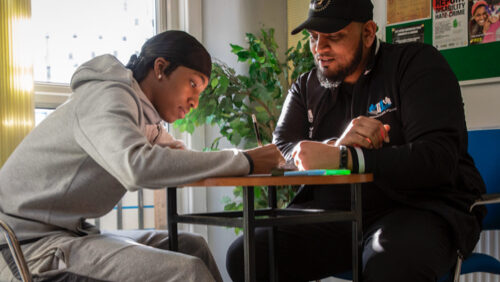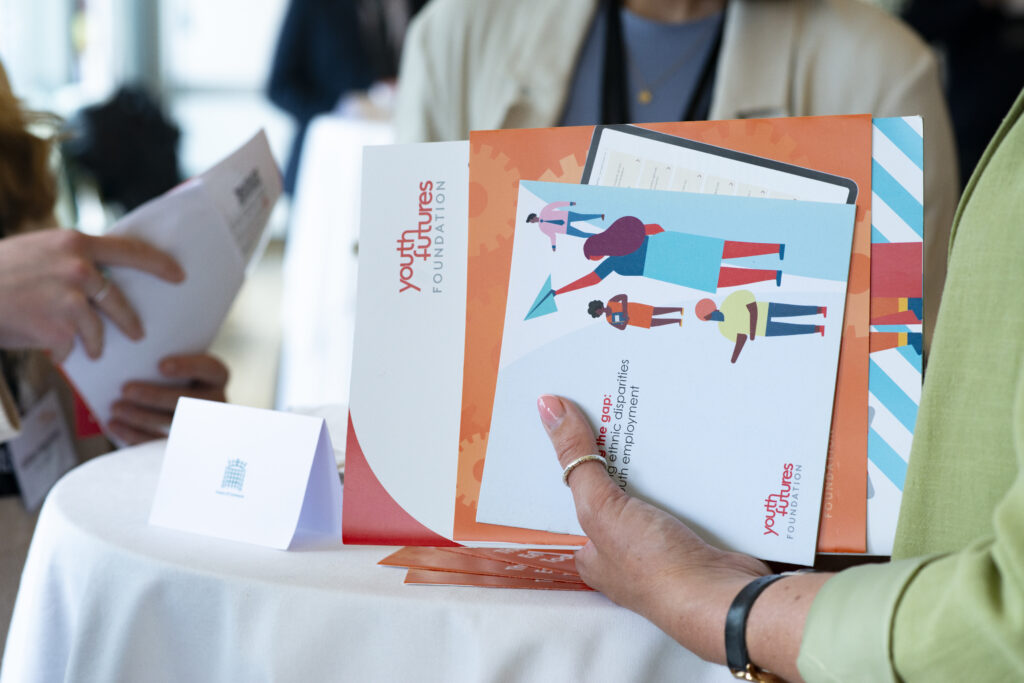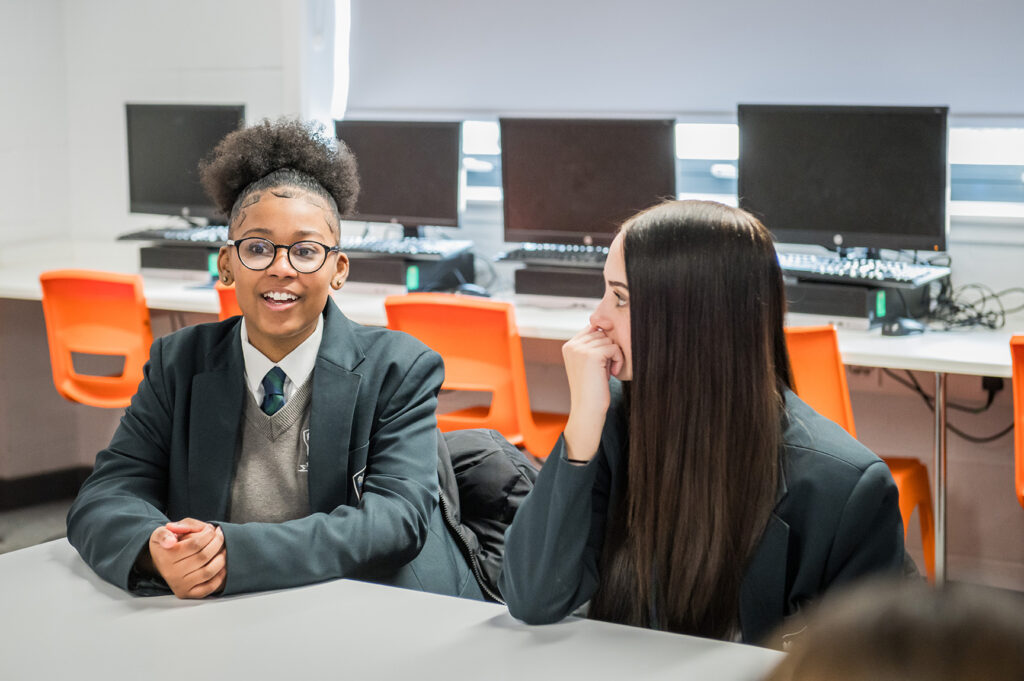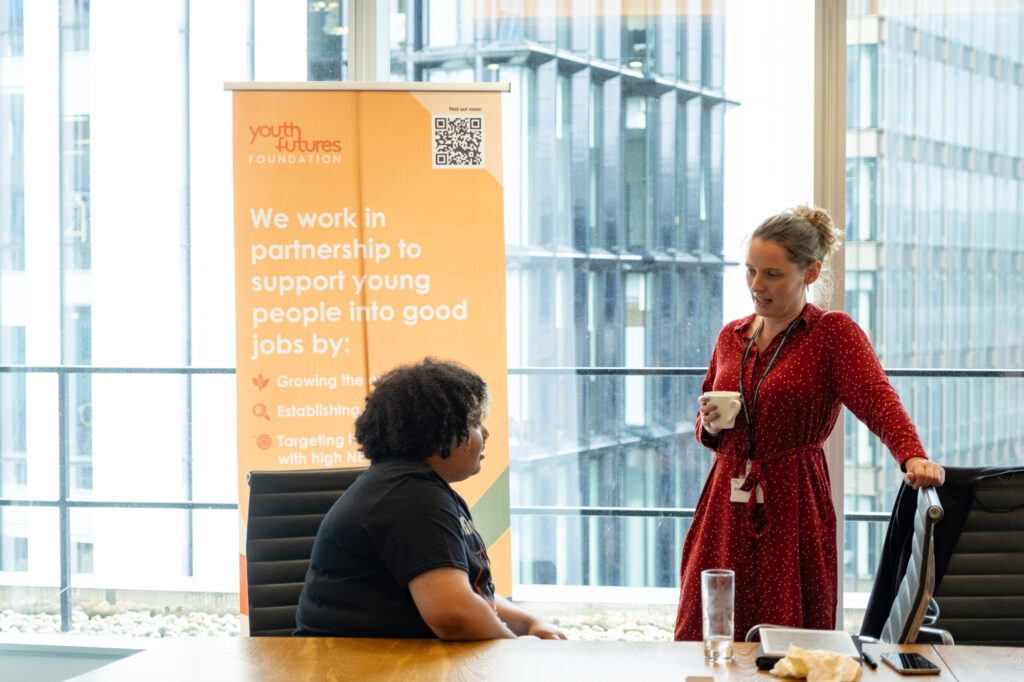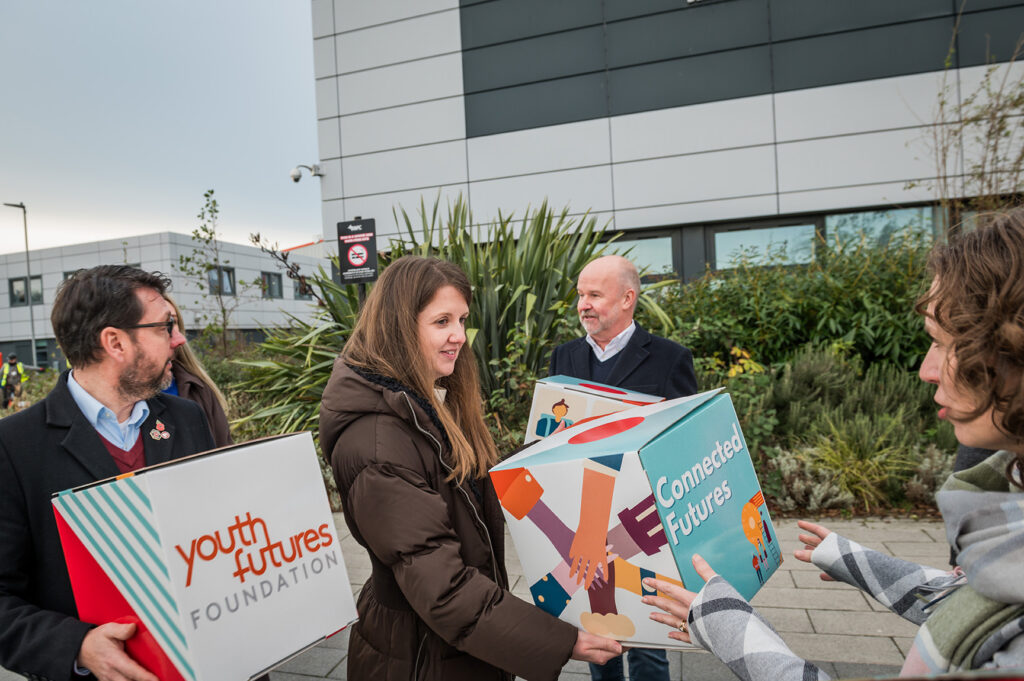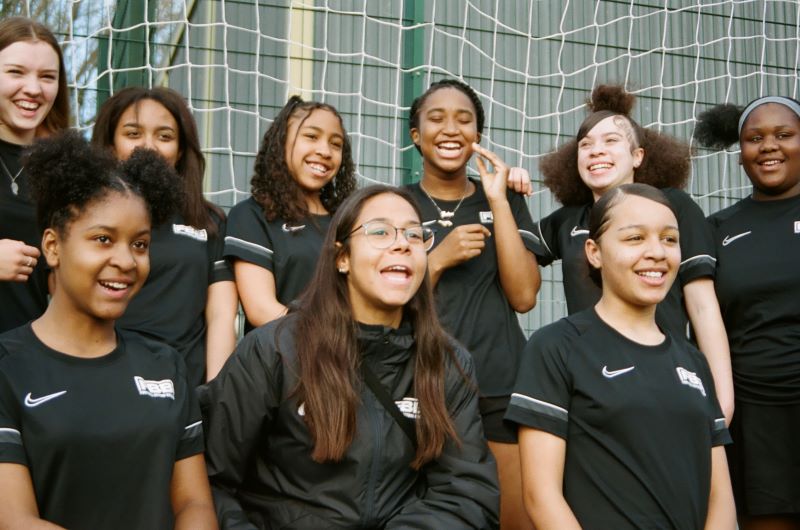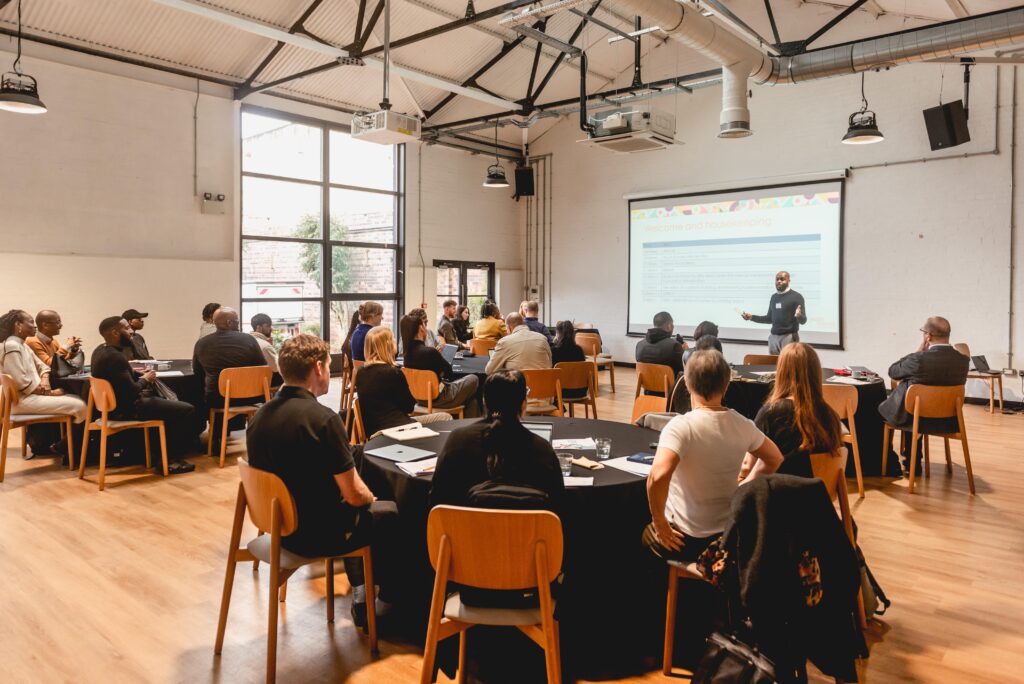If we match the current NEET rate of the Netherlands, 500,000 young people will move into work or education and the UK economy will benefit by £69bn


Barry Fletcher, CEO“1 in 8 young people are not in education, employment, or training (NEET), with those from marginalised backgrounds disproportionately affected.
“While the issue is big, so is the prize for getting it right, both for young people themselves and for our society as a whole.
“Our 2025-2028 strategy enshrines Youth Futures’ role in creating and analysing evidence of what works for youth employment and – crucially – in translating and embedding it for lasting systems change.
“We invite you to join us in our refreshed and refocused mission that will unlock a generation of talent.”
Our youth employment strategy
Our Vision
A society where every young person can achieve good work.
Our Mission
To ensure marginalised young people can secure and thrive in good work, by finding out What Works and driving change in policy and practice.
Defining ‘good work’
We know that quality of work is just as important as its availability for young people.
As we strive to make good work accessible for all young people, we need to understand what good work really looks like, putting their voices at the heart of the conversation and underpinned by robust evidence.
Watch our explainer video for our current working definition.
Learn more about how we’re developing a more comprehensive definition
Explore the projectNorth star goals for 2050
Providing a clear measure across the system for the long-term change we want to see.
Not in education, employment or training (NEET) rate for young people in England falls to match the best in the OECD.
Remove the gaps in education, employment and training outcomes for specific groups of marginalised young people.
About Youth Futures Foundation
We are the national What Works Centre for youth employment, with a specific focus on marginalised young people.
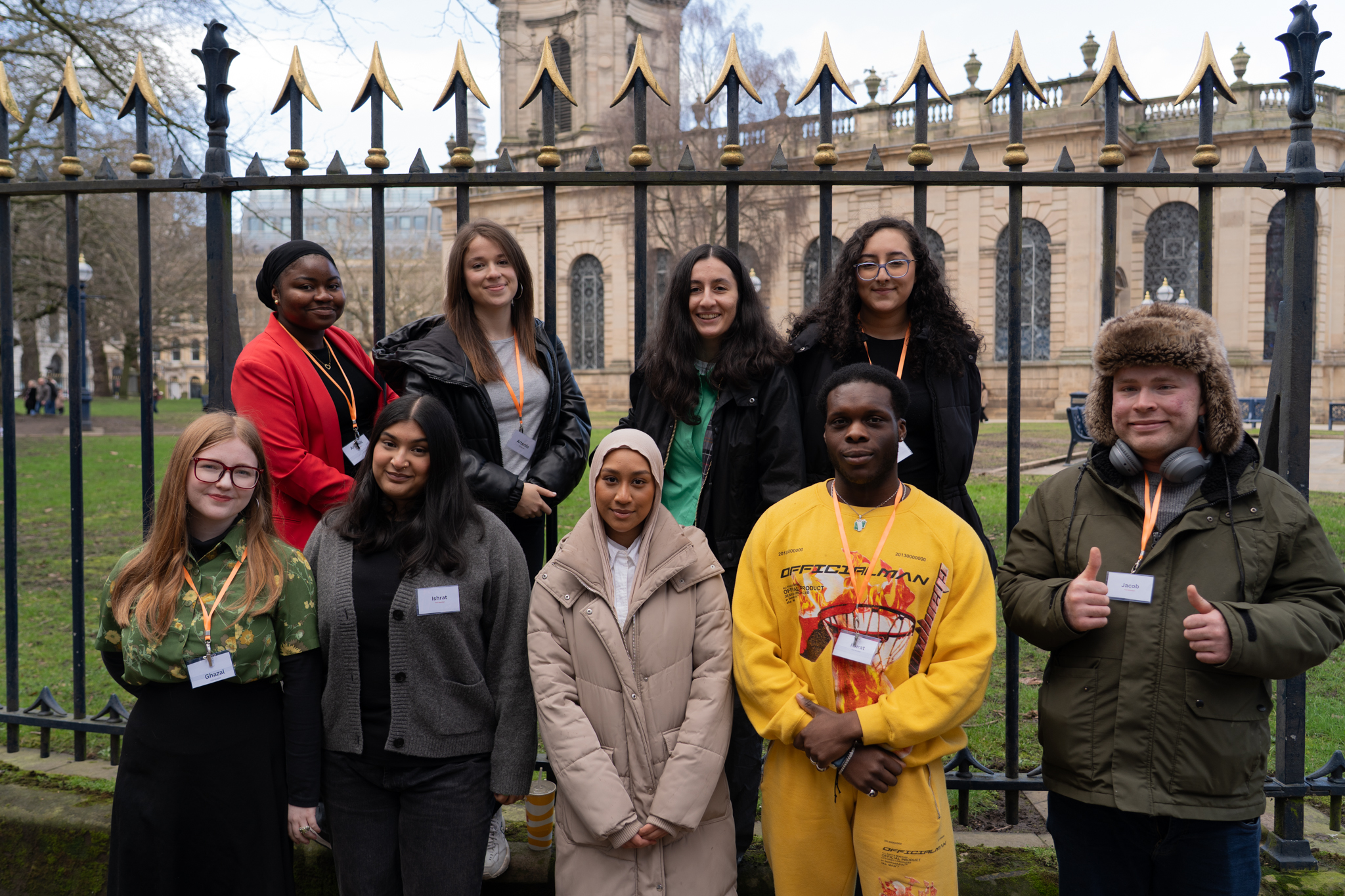
We believe that the young people who are most affected by the system must be at the heart of efforts to change it. That is why we meaningfully include the voices, perspectives and participation of young people experiencing marginalisation throughout our work.
Our approach to youth inclusion
Yi Kang Choo, Futures Voices Ambassador (Alumni)“Since joining the Future Voices Group in 2022, I have witnessed firsthand how deeply youth voice is embedded within the Youth Futures organisational strategy and work.
“The continuation of youth involvement in shaping this new strategy shows Youth Futures’ genuine belief in the power of lived experience as a key driver for change.”
The current picture for young people
Across the UK, the proportion of young people not in education, employment or training has stayed persistently high over decades. The challenge is even greater for the most marginalised young people, who face serious systemic barriers to finding and keeping good work.
Theory of change
The Challenge
- Young people not earning or learning has remained stubbornly high.
- Young people who are marginalised face greater barriers to accessing good work.
- Limited understanding and application of evidence in the youth employment system
Analyse
We capture, collate and analyse data, research and insights from stakeholders, delivery partners and young people to understand what is happening to young people and why
Create
We partner on research, designing and funding evaluations to fill evidence gaps and refine collective understanding
Translate
We turn complex evidence into practical and accessible formats for policymakers, funders, employers and others in the system, ensuring it can be applied effectively in real-world setting
Embed
We work with key stakeholders to help them put evidence into action to better support marginalised young people, for lasting, systemic improvement
Environment
- Discrimination against marginalised groups
- Political appetite for change
- Public attitudes towards youth employment (and evidence)
- The wider economy and labour market
Outcomes by 2028
Funder outcomes
More funding for youth employment is available and evidence-based
Funders
Funders and commissioners from government, philanthropy and corporate sectors who allocate financial resources for the scope, reach and quality of employment support for young people
Policymaker outcomes
More public policy is based on evidence of what works to create increased employment opportunities, and help marginalised young people find and stay in good work, education or training
Public policy makers
National and regional representatives, officials and bodies who set laws and policy that directly affect the structural and operational landscape for youth employment
Employer outcomes
More employer practice is based on evidence of what works to recruit and include marginalised young people
Employers
From small business to large corporations, employers provide the jobs and training opportunities available to young people
A society where every young person can achieve good work.
Strategic focus areas
Based on what the current evidence tells us, and the existing gaps in knowledge, we are focusing on seven key themes of work over the 2025-2028 period to affect change:
-
Barriers and discrimination in employment
We will identify and expose systemic employment barriers for marginalised young people, offering actionable insights and advocating for evidence-based policy and practice reforms that ensure equity and inclusion
Learn more -
Place-based change
We will help empower local youth employment systems to function more effectively and cohesively by supporting them to better understand and analyse localised youth employment challenges and devise evidence informed, locally-tailored solutions
Learn more -
Mental health and wellbeing
We will deepen understanding of the interplay between mental health and youth unemployment, and help drive improved outcomes by testing, identifying and promoting evidence-based interventions
Learn more -
Amplifying the youth employment challenge and opportunity
We will raise the profile of youth unemployment in the public and policy dialogue through showcasing the evidence to boost understanding and secure needed focus and resources
Learn more -
Early intervention and transition
We will strengthen the evidence base for early NEET prevention and transition from education to employment for marginalised young people, to inform joined-up policy and practice solutions
Learn more -
Apprenticeships and vocational training
We will advocate for policy and practice reforms to increase apprenticeship and vocational training opportunities and boost quality of provision through evidence generation and translation
Learn more -
Employment support programmes
We will cultivate and promote a robust evidence base on what works in youth employment support for NEET young people, to guide employers and local and national policymakers to invest consistently and effectively in sustainable programmes for young people
Learn more
Strategic approach
Our organisational portfolio of work, encapsulated by our seven strategic areas of focus, is designed to be audience-centric and will be instrumental in achieving the three targeted outcomes outlined for this strategic period.
We are intensifying our focus on generating evidence, bringing data to life, and working closely with employers, public policymakers, funders and young people.
This approach is pivotal not only for immediate success but also for the system to reach the north star goals we are setting by 2050.
Marginalised groups
Evidence shows that around half of young people who are NEET for over a year share one or more of these characteristics:
- Black, Pakistani, or Bangladeshi heritage
- experience of the care system or the justice system
- a learning disability or autism
- mental health challenges
To remove employment gaps, we are predominantly focusing our research and investment on young people with these characteristics.
Our efforts during this strategy period will build over time to achieve impact, driving necessary change in policy and practice for marginalised young people.


Seyi Obakin OBE, Board Chair“The scale and complexity of the UK’s youth employment challenge requires co-ordinated systems change to deliver sustainable solutions.
“As the What Works Centre for youth employment, Youth Futures Foundation has a key role to play in facilitating this change.
“I am proud to renew my commitment to such an important organisation that strives to build a future where every young person can achieve good work.”

